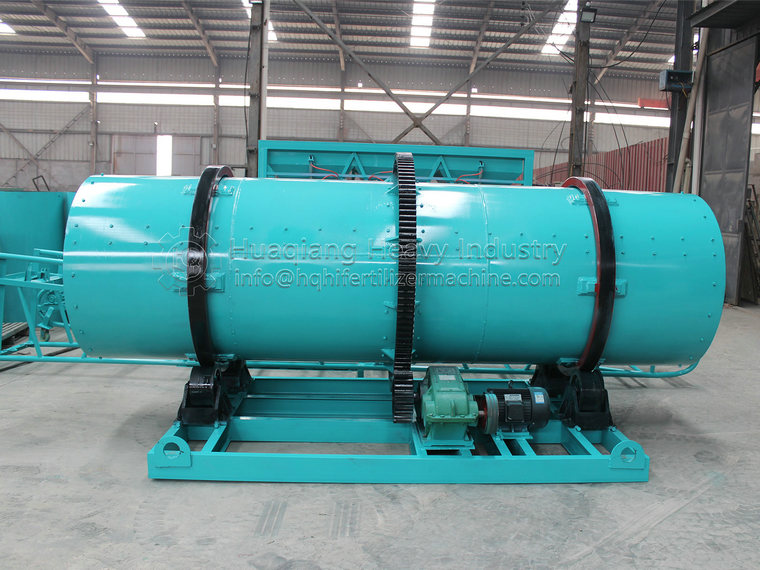The process flow of the complete set of npk fertilizer production line equipment can usually be divided into: raw material batching, raw material mixing, raw material granulation, particle drying, particle cooling, particle classification, finished product coating, and final product packaging.
Then how long does the material stay in the equipment (rotary drum granulator) to achieve the desired quality, the residence time is the amount of time the material is processed in a given equipment. In most npk manufacturing process setups, producers must be able to achieve specific retention times to achieve their desired goals.
While retention time looks simple in theory, it gets complicated when a continuous process is used. In a continuous production run, there are no batches, and there is no real boundary between "start" and "end"; material is constantly entering and exiting the drum at the same time, making it difficult to determine the true length of time to process a given portion of material.
1. Introduction to Tracers
Tracers such as dyes or chemicals are not always permitted due to product composition or contamination concerns. However, where permitted, the tracer can be a very useful tool for determining retention times; by measuring where the tracer begins to flow out of the drum and where the tracer is no longer seen, the average retention can be determined time.
2. Measure drum volume
The retention time can also be defined by measuring the volume of material in the drum or the weight of the material in the drum when the process is at steady state. In steady state, the material is fed and discharged at the same rate. The average retention time can be determined by dividing the material bed volume or material bed weight by the volumetric flow or mass flow. It is important to understand that retention times are always averaged across consecutive settings.
